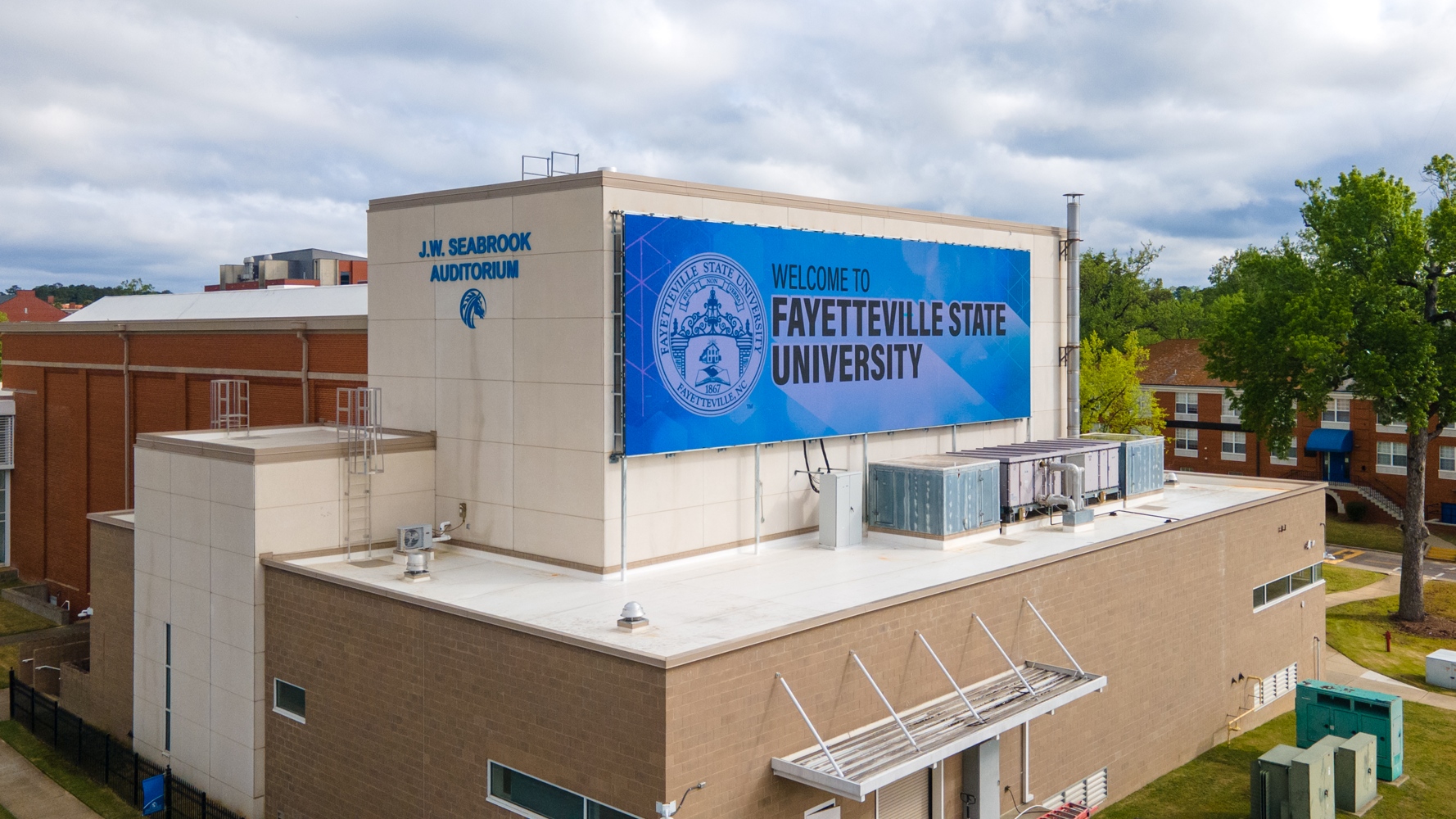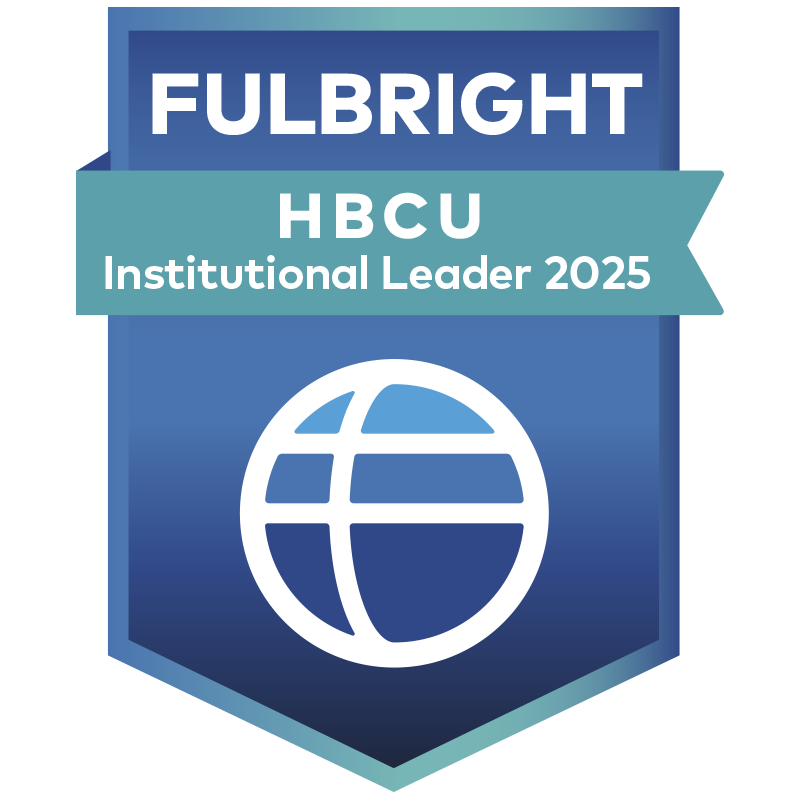Fayetteville State University Named 2025 Fulbright HBCU Institutional Leader by the U.S. Department of State

FAYETTEVILLE, N.C. - Fayetteville State University was named a Fulbright Historically Black College and University Institutional Leader for 2025 by the U.S. Department of State for the sixth consecutive year on Tuesday, Sept. 9, in recognition of its commitment to preparing students and faculty for success through the premier international academic exchange program.
The Fulbright HBCU Institutional Leader initiative recognizes institutions that demonstrate significant engagement with the Fulbright Program. For the 2024-2025 academic year, Fayetteville State University is one of 20 HBCUs nationwide to receive this distinction.
Through this involvement, the university expands opportunities for students and faculty to study, teach, and conduct research abroad, while also welcoming international scholars to its campus. The program promotes cross-cultural understanding and advances academic excellence on a global scale.

“We are honored that Fayetteville State University has, once again, earned recognition as a Fulbright HBCU Institutional Leader,” said Monica T. Leach, Ed.D., provost and senior vice chancellor for Academic Affairs. “This recognition is a testament to the unwavering commitment, passion, and excellence of our Bronco community. Our faculty drive groundbreaking research, our students boldly pursue opportunities abroad, and our alumni create impact across continents. Together, we are empowering the next generation of leaders to thrive in an ever-changing, interconnected world.”
Deborah McLeod Vasquez, Ed.D., director of the Office of International Education Programs and Fulbright Program liaison, agreed and added that the institutional recognition also reflects Fayetteville State University’s record in the Fulbright U.S. Scholar Program, where individual faculty and alumni have earned awards to conduct independent research projects in their field.
“Our scholars have conducted vital health research in Ghana, built educational partnerships in Germany, and advanced learning across disciplines from computer science to history,” she said. “When they return, our scholars bring those experiences into the classroom, sparking new ideas, motivating our students, and strengthening the university’s impact across North Carolina.”
Since 2006, Fayetteville State University has hosted foreign language teaching assistants and visiting grantees who enrich the campus with their cultural and linguistic expertise.
This year, three FLTAs—Karim Bahmane (Morocco), Yueh-Ru Yu (Taiwan), and Bankole Solomon (Nigeria)—are contributing to courses and community programs, bringing fresh perspectives to the Bronco learning environment.
Fayetteville State University’s connection to the Fulbright Program stretches back more than 70 years. Honorees in recent years include:
- Todd S. Frosbish, Ph.D., professor and chair at the Department of Communication, Languages, and Cultures | Fulbright U.S. Scholar 2022-2023 | Host Institution: German American Fulbright Commission - Germany
- Afua Arhin, Ph.D., dean of the Lloyd College of Health, Science, and Technology | Fulbright U.S. Scholar 2022-2023 | Host Institution: Mountcrest University College - Ghana
- Daniel Okunbar, Ph.D., professor in Computer Science | Fulbright U.S. Scholar 2020-2021 | Host Institution: University of Abuja - Nigeria
- Roger Klomegah, Ph.D., former assistant professor in Sociology | Fulbright U.S. Scholar 2016-2017 | Host Institution: Southern Africa Nazarene University - Eswatini
- Alexander Umantseve, Ph.D., professor of Physics | Fulbright U.S. Scholar 2015-2016 | Host Institution: National University of Science and Technology, Russia - Russia
- Daniel Okunbar, Ph.D., professor in Computer Science | Fulbright U.S. Scholar 2015-2016 | Host Institution: University of Abuja - Nigeria
These achievements highlight why Fayetteville State University continues to earn distinction as a Fulbright HBCU Institutional Leader.
The honor reflects the university’s enduring commitment to international engagement and its role in preparing scholars and leaders who make a difference both in the classroom and in communities worldwide.
